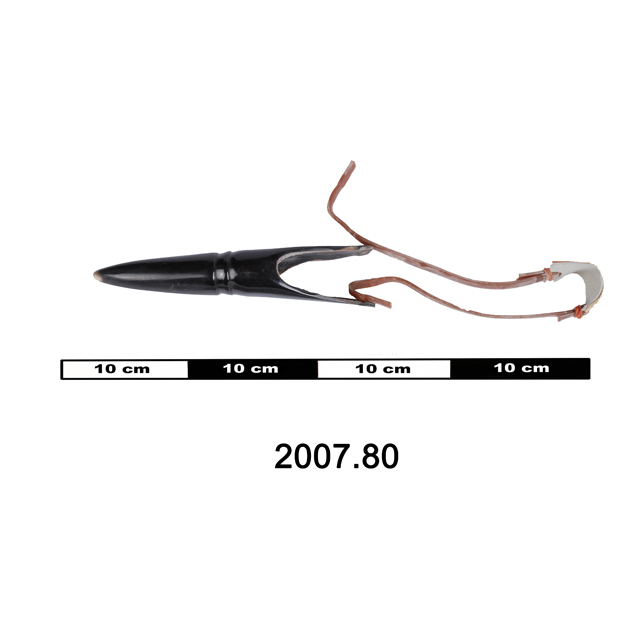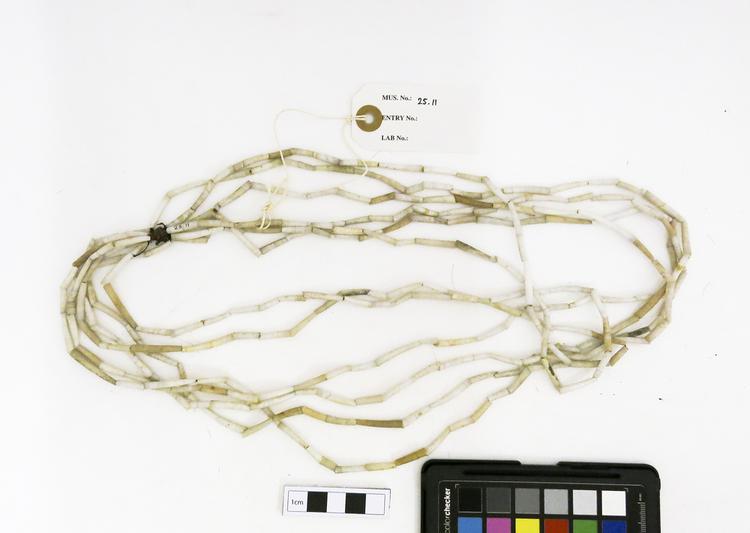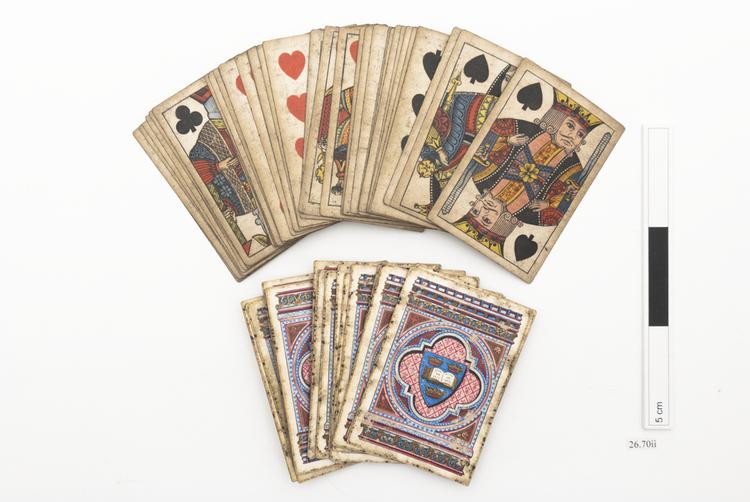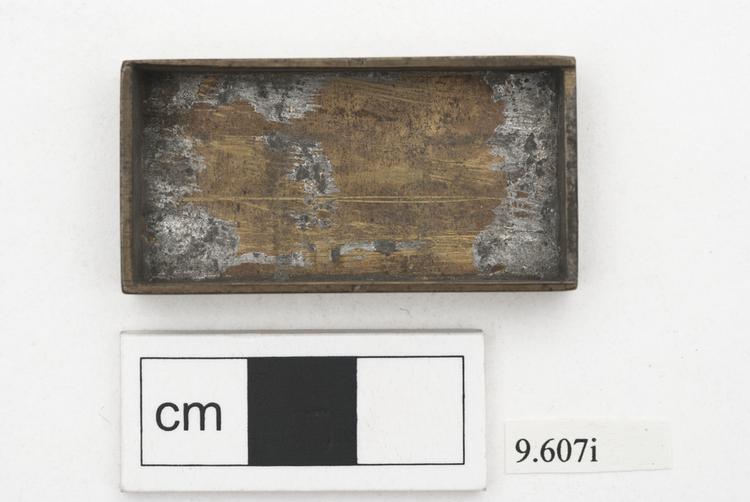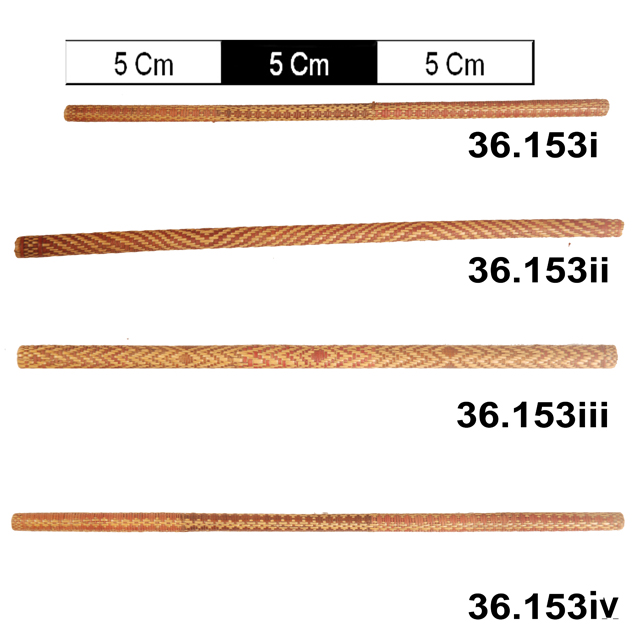
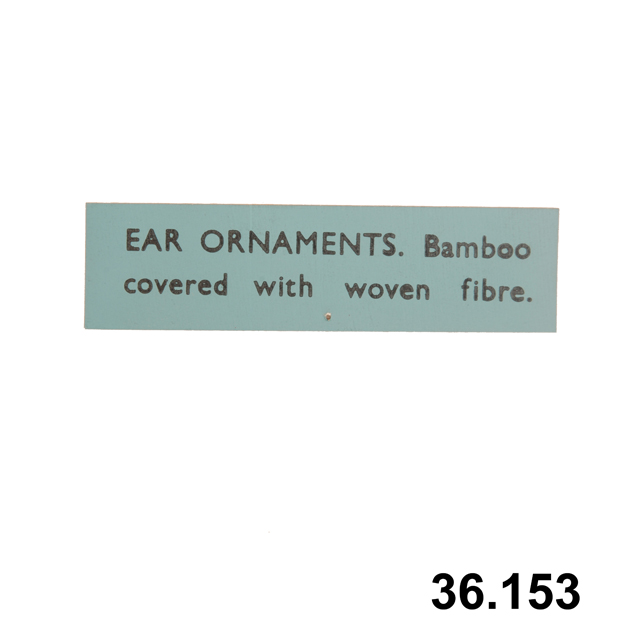
Four ear sticks.
Three Ear Ornaments, Central Solomon Islands, Central Melanesia Piercing the earlobes and distending the hole to accommodate various ornaments was common throughout the Pacific. In the Solomon Islands, ear ornaments intended to be worn on special occasions were remarkable combinations of different coloured beads, shell money disks, teeth and so on. Their usual basis, however, was much the same as these everyday ear sticks worn to keep the holes open and at their desired size. Each of these sticks is a short length of bamboo, covered throughout with a tight and continuous weaving of red and yellow orchid stem strips. The yellow strips are the orchid stem’s natural colour when dried, while the red strips are produced by boiling these strips inside a node of large bamboo filled with fresh water. The simple act of boiling causes this strong and permanent colour change. The different woven designs seen here display just a few of the many complex weaving patterns to be found in the central Solomon Islands: on house screens, the foreshafts of spears, ornamental hair combs and other objects. Bamboo, orchid stem fibres. Early 20th Century. Formerly in the private collection of a Mrs Bellamy.



